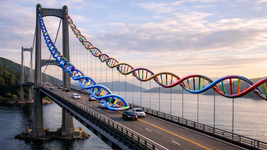Clinical Trial Update: Gene-edited CAR T Therapies
CMN Intelligence - The World’s Most Comprehensive Intelligence Platform for CRISPR-Genomic Medicine and Gene-Editing Clinical Development
Providing market intelligence, data infrastructure, analytics, and reporting services for the global gene-editing sector. Read more...
This week’s clinical update looks at 3 clinical trials for CRISPR-edited CAR T therapies for the treatment of B-cell cancers or multiple myeloma (MM).
The 3 new therapies are developed by Bioray Laboratories, a Shanghai-based company focused on gene and cell-based therapies, and all 3 trials are seeking to evaluate the safety and efficacy of novel therapies that are either engineered to target the cell surface antigen CD19 or the B cell maturation antigen (BCMA).
CD19 is expressed on the surfaces of all B-cell cancers, a feature that has made it a highly attractive target for cancer immunotherapy. The first two CAR-T therapies to be approved in 2017 target CD19 and many more are in development for relapsed or refractory B-cell cancers such as leukaemia and lymphoma. BCMA is a cell surface protein universally expressed on malignant plasma cells and it has become a major target for MM.
Quikin: a CD19-CAR T Therapy for Relapsed or Refractory B-Cell Lymphoma
The first trial is for Quikin, a CD19-targeting and PD1 knockout autologous CAR T-cell therapy, where CRISPR-Cas9 gene-editing technology is used to knock out the PD-1 gene and engineer the anti-CD19 chimeric antigen receptor (CAR). PD-1 encodes the PD-1 protein which functions as a safety switch on T cells that cancer cells turn on to protect themselves from T cell-mediated immune responses. PD-1 disruption is sometimes included in CAR T-cell development to enhance anti-tumour activity.
The trial, which is still recruiting, is a non-randomised, open label, single-site study that aims to enroll 20 adult participants with relapsed or refractory B-cell lymphoma.
During the trial, participants will undergo leukapheresis (white blood cell isolation), the cells will be CRISPR-engineered and then transfused intravenously back into patients in 1 of 3 acscending doses. Four to six days before dosing, participants will undergo lymphodepletion with cyclophosphamide and fludarabine to deplete endogenous T cells. This step is widely included in CAR T treatment regimens as an attempt to prolong the persistence of infused cells and thereby increase the effectiveness of the treatment.
The primary outcome measure is an assessment of dose-limiting toxicity, i.e. identifying potential side effects of the therapy that are serious enough to prevent additional or increased dosing. Secondary outcome measures include evaluating the anti-tumour response and progress free survival at 3 months post-treatment using disease-specific parameters.
The estimated study completion date is April 2022. After completion of study treatment, subject participation for this study will be followed up to 15 years.
CD19-UCART for the Treatment of Relapsed or Refractory B Cell Cancer
The next trial is for CD19-UCART, an "off-the-shelf" CAR T therapy that is developed from donor-derived peripheral blood mononuclear cells (PBMCs).
The trial is an open-label, dose escalation study to evaluate the safety and anti-tumor efficacy of CD19-UCART in the treatment of relapsed or refractory acute lymphoblastic leukaemia (ALL) and non hodgkin lymphoma (NHL).
The study will enroll twenty participants from 6 to 65 years of age, split into participants aged 6 to 30 years with ALL and participants aged 16 to 65 years with NHL. Each participant will receive a single intravenous injection of CD19-UCART cells at 1 of 3 ascending doses. Prior to dosing, partipicants will undergo lymphodepletion therapy.
The primary study outcome is to assess dose-limiting toxicities i.e. adverse events related to the administered doses. Secondary outcomes include evaluation of partial or complete anti-cancer response according to disease-specific parameters and the duration of persistence of the CD19-UCART cells after infusion via flow cytometry or quantitative PCR methods. The expected study completion date is December 2022.
BCMA-UCART for the Treatment of Relapsed or Refractory Multiple Myeloma
The last trial in this week’s update concerns a BCMA-targeting CAR T-cell therapy that is developed to treat relapsed or refractory multiple myeloma. This therapy, called BCMA-UCART, is generated from healthy donor-derived T cells.
This open-label, dose-escalation study aims to evaluate the safety and anti-tumor efficacy of BCMA-UCART in 20 adult participants, each of whom will receive a single intravenous injection of BCMA-UCART cells at 1 of 3 acsending doses, following a preconditioning lymphodepletion treatment.
The primary study measure will examine the objective response rate up to 90 days post-treatment. Patients will be assessed for either partial or complete response in accordance with standard disease-specific criteria for MM. Secondary outcome measures encompass 1) an assessment of adverse events as a measure of safety and tolerability of the new therapy, in the period up to 35 days post-treatment, and 2) assessment of the persistence of BCMA-UCART cells at up to 1 year post-treatment; this will be evaluated via flow cytometry or quantitative PCR methods.
The expected study completion date is November 2023.
For a complete overview of current gene editing clinical trials, check out CRISPR Medicine News' Clinical Trials Database.
Tags
ArticleNewsin vivoAcute Lymphoblastic Leukemia, ALLB-cell Malignancy, NHLMultiple Myeloma, MMCAR-TCRISPR-CasCas9Shanghai Bangyao Biotechnology Co., Ltd. - BioRay LaboratoriesTrialsClinical
CLINICAL TRIALS
Sponsors:
Base Therapeutics (Shanghai) Co., Ltd.
Sponsors:
Base Therapeutics (Shanghai) Co., Ltd.







